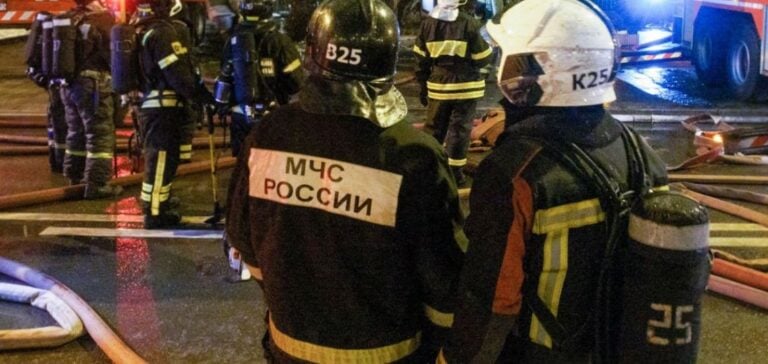A fuel depot located in the village of Stalnoy Kon, in Russia’s Oryol region, was targeted by a new drone attack on December 22. This strike, involving 20 devices, reignited concerns about the vulnerability of Russia’s energy infrastructure amid ongoing geopolitical tensions.
A strategic region under pressure
The depot, managed by the Transneft network, plays a crucial role in fuel supply logistics for several regional hubs. According to the regional governor, Andrey Klychkov, the fire caused by the attack was swiftly brought under control by firefighters, minimizing its impact on local fuel availability.
Located less than 200 kilometers from the Ukrainian border, Stalnoy Kon has been targeted repeatedly as part of efforts to disrupt Russia’s logistical capabilities. A previous attack on the same site on December 14 caused a fire that lasted over 12 hours.
Critical infrastructure targeted
The attacks are not limited to the Oryol region. Kazan, a city located 1,000 kilometers from the Ukrainian border, has also been struck by drones. Local authorities, led by Rustam Minnikhanov, confirmed that industrial facilities and residential buildings were hit.
Recent strikes demonstrate the expanded range of Ukrainian drones, now reaching major facilities like oil refineries in Moscow.
Economic and strategic impact
These attacks highlight intensified Ukrainian tactics targeting energy infrastructure to weaken Russia’s economy and military capabilities. In December, a similar strike hit the Novoshakhtinsky refinery, temporarily disrupting its production.
In response, Russia is bolstering its defense systems, but the frequency of these strikes continues to expose persistent vulnerabilities in protecting critical energy infrastructure.






















